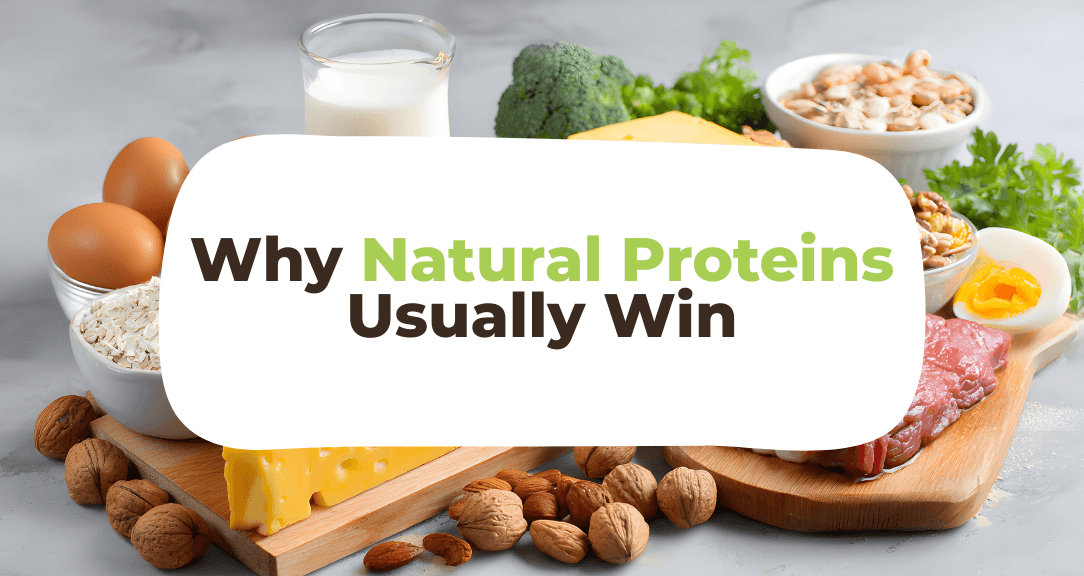Protein First: What It Means and Why It Matters
It’s not a diet rule. It’s a way of taking care of your body.
If you’ve had weight loss surgery or you’re on GLP-1 therapy, you’ve probably heard the phrase “protein first”. It’s simple advice, but it carries a lot of meaning, especially when your body is healing, adapting, and learning a new rhythm with food. So, what does it really mean, and why does it matter so much? Let’s break it down.
Protein Is Your Body’s Building Material
Every cell in your body uses protein - from muscle and skin to enzymes and hormones. After weight loss surgery, your food volume is smaller, which means every bite counts. Focusing on protein ensures that the nutrients you can eat go toward keeping your body strong, your hair and skin healthy, and your metabolism supported. It’s not about restriction. It’s about prioritisation.
Muscle Matters (Even If You’re Not a Gym Person)
Your body uses muscle for more than movement - it’s a major player in metabolism. The more lean muscle you have, the more efficiently your body can use energy and maintain strength during weight loss. After surgery, when you’re losing weight quickly, it’s normal to lose some muscle too. That’s why getting enough protein and adding gentle movement, like walking, resistance bands, or light strength training, helps protect your muscle mass and energy levels.
Protein Keeps You Satisfied
Protein takes longer to digest than carbohydrates, helping you feel full for longer. It stabilises blood sugar levels, reduces energy crashes, and can calm the rollercoaster of hunger and cravings that sometimes reappear months after surgery. Many people notice that when they eat their protein first, before softer, less dense foods, they stay satisfied with less overall.
How to Practically Eat “Protein First”
Putting protein first doesn’t mean you have to live on shakes or chicken forever. It simply means making sure each meal or snack includes a good quality protein source before filling up on anything else.
Here are a few examples:
Start your day with scrambled eggs, Greek yoghurt, or a protein smoothie.
Add lean meats, fish, tofu, or legumes to lunch and dinner.
Choose protein-rich snacks like cottage cheese, edamame, or nuts (as tolerated).
Use protein supplements if your dietitian recommends them, especially in early recovery.
What “Enough” Looks Like
Your specific protein needs depend on your body, your surgery type, and your activity level. Most bariatric guidelines suggest spreading protein throughout the day rather than having it all at once. A good rule-of-thumb is to use a 15cm plate for your meals post-surgery, and to aim for half of the plate to be protein. If you’re unsure what’s right for you, your bariatric team or dietitian can help you find the balance that fits your goals and digestive comfort.
Why Natural Protein Sources Usually Win
Protein powders and shakes can be useful, especially right after surgery when eating enough solid food is tricky, but they’re best seen as support, not a substitute for real food. Whole food proteins like eggs, fish, lean meat, tofu, or Greek yoghurt come with a bonus: natural vitamins, minerals, and other nutrients that your body knows exactly how to use.
Many commercial protein products are heavily processed and can contain added sugars, artificial sweeteners, gums, or fillers that don’t add value, and sometimes upset digestion. Others are marketed as “high-protein” but deliver only a small amount for a much higher price. Real foods tend to be more satisfying, less processed, and often give you far better nutrition for your money. When possible, think of shakes and powders as backup plans - helpful tools for busy days or early recovery, but not the main event. Your body thrives on the real stuff.
Beyond the Numbers
Eating protein first isn’t just a rule to follow, it’s an act of care. It supports your healing, helps you maintain energy, and gives your body the raw materials it needs to adapt to your new lifestyle. Every bite is a chance to rebuild strength from the inside out. So the next time you sit down to eat, remember:
protein first isn’t pressure — it’s protection.
Let’s Talk Protein
Do you follow “protein first”? What’s your go-to meal or snack that keeps you full and energised? Drop your ideas or wins in the comments - someone else might get inspired by your routine!
If you enjoyed this post, you might also like What Really Happens to Your Metabolism After Weight Loss Surgery or Why Natural Proteins Usually Win.
💬 Want to keep learning and connecting? Join our community, Life on the Loser’s Bench, for more education, conversation, and support.
⚖️ Disclaimer
This article is for educational purposes only and is not intended to diagnose, treat, cure, or prevent any disease. Please consult your healthcare provider for personalised advice.






